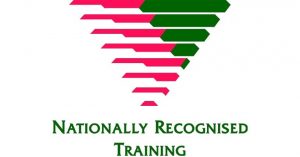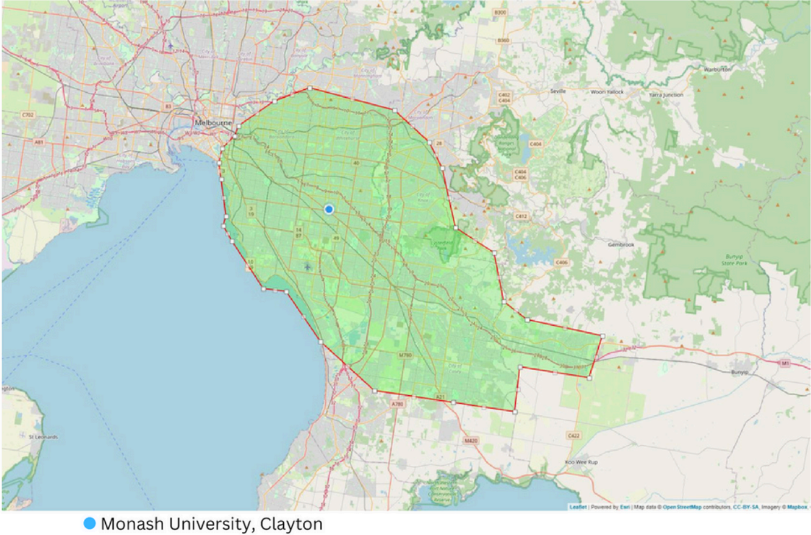CHC30221 Certificate III in School Based Education Support

Not available in 2025
Unfortunately the state government has severely cut funding to independent training providers, resulting in us being unable to deliver this qualification in 2025.
The Certificate III in School Based Education Support qualification reflects the role of workers who assist teachers and support student learning in a range of classroom settings. They complete general administrative as well as operational tasks to support students with learning under the guidance of a teacher or other educational professional. Work requires use of discretion and judgement within the boundaries of established policies and procedures.
Education support workers work mainly with students in classroom settings in primary or secondary schools, as defined by State/Territory legislation.
To achieve this qualification, the individual must have completed a total of least 100 hours of work in a classroom environment catering to primary or secondary school students, within at least one school in Australia as detailed in the Assessment Requirements of units of competency. The total number of hours may be applied collectively across all units of competency that include the requirement for workplace hours.
This qualification reflects the role of workers in a range of education settings, including public and independent schools and community education settings, who provide assistance and support to teachers and students under broad-based supervision.
Possible job roles relevant for those who complete the Certificate III in School Based Education Support:
• Education Support Worker/Officer
• Teacher’s Aide
• Integration Aide
• Learning Support Officer
• Education Assistant
• Language and Literacy Worker
• Tutor/Home Tutor
How to Enrol
To enrol into this course, please complete the enrolment forms below. As part of the enrolment form you will complete a Language, Literacy and Numeracy (LLN) assessment. It is a requirement of our government regulator, ASQA, that we assess the LLN of all students prior to enrolment. Incomplete applications will not be accepted.
Once you have been accepted into your course, you will receive an email roughly one week prior to course commencement. This will include student login details and information about your Zoom classroom or campus-based venue.
People with a disability are encouraged to apply.
What makes this course different?
At MSATPD, we are renowned for our high-quality resources, experienced and dedicated trainers, and supportive administrative staff. Our commitment to excellence is reflected in our exceptional course completion rates, which are among the highest in Australia. As a smaller RTO we are able to get to know each of our learners and how we can help them succeed throughout their studies with us. We pride ourselves on providing an engaging and supportive learning environment that helps students achieve their goals and succeed in their careers.


MSA Training and Professional Development adheres to the Code of ethics for ACPET members
RTO Number: 21526
Course fees 2025
Fees are inclusive of all materials.
All enrolments are subject to our Refund and Transfer Policy, please click here for the relevant details.
Depending on your individual circumstances, this course may be tax deductible.
Course fees must be paid prior to course commencement. Up to $600 will be taken as a deposit for upfront payments, with the balance to be paid via a payment plan or Request for Invoice/purchase order (eg. if your employer/agency is paying).
No tuition fee will be charged to eligible Skills First students who self-identify as being of Aboriginal or Torres Strait Islander descent. Students may still be charged a Materials Fee
Concession Eligibility
To be eligible for the concession price for short courses and Certificate & Diploma (Non-Funded only), you must be one of the following:
Monash and other students
Monash Staff
Monash Alumni
Health Care Card and Pension Card holders
The Nationally Recognised Certificate III in School Based Education support qualification is delivered in the classroom or via Zoom over 34 sessions running two days per week for approximately 20 weeks from 9am – 3.00pm. The timetable and the order of units is subject to change.
You will also need to complete 100 hours of work placement as part of this course.
Total classroom hours: 187 hours total
Estimated study hours: 8 hours per week
CHCDIV001 Work with diverse people
CHCEDS061 Support responsible student behaviour
CHCEDS033 Meet legal and ethical obligations in an education support environment
CHCEDS034 Contribute to the planning and implementation of educational programs
CHCEDS035 Contribute to student education in all development domains
CHCEDS036 Support the development of literacy and oral language skills
CHCEDS037 Support the development of numeracy skills
CHCEDS060 Work effectively with students and colleagues
CHCEDS059 Contribute to the health, safety and wellbeing of students
HLTAID011 Provide First Aid
CHCEDS051 Facilitate learning for students with disabilities
CHCEDS057 Support students with additional needs in the classroom
CHCEDS048 Work with students in need of additional learning support
CHCEDS041 Set up and sustain learning areas
HLTWHS001 Participate in workplace health and safety
Knowledge
Students will require a sound understanding of how to navigate computers along with software (Word, PowerPoint), opening and closing documents, saving documents, formatting documents, typing and using the internet for searching and emails. Students who are not confident using computers are welcome to enrol in one of the short computer courses provided by MSA Training and Professional Development.
Students are required to fill out a Language Literacy and Numeracy assessment during the enrolment process. For those with difficulty filling out the LLN form MSA Training and Professional Development offers a beginners’ ESL and individual ESL classes. During enrolment students will also undergo a pre-training review which will help make sure this course is right for you and identify any additional support you may need.
Attendance
Students who are unable to attend all sessions of their chosen timetable may need to make-up those sessions in other timetables to be able to successfully complete their qualification.
Group-work is required for this qualification and students will be assessed on their level of participation.
Students are required to attend a minimum of 85% of their classes. If you are unable to meet the minimum attendance, you may be required to take make-up sessions in a different timetable.
Assessment methods and requirements
Assessment will include trainers conducting observations while students are on placement, written knowledge questions, and classroom activities, role plays and projects.
Assessments are to be submitted to your trainer within 4 weeks of the unit/cluster.
Technology
Please ensure you have a laptop with Microsoft Word, or equivalent, for campus-based classes.
A computer with Microsoft Word, or equivalent, sufficient internet connection, camera and mic for zoom classes, before enrolling into this qualification.
For an enhanced learning experience, it is strongly recommended to use a second monitor while studying this course via Zoom, as it will provide greater convenience and flexibility.
First Aid unit
The First Aid unit must be completed face to face, this unit is not able to be delivered via Zoom.
Options available
- Payment by employer (invoice)
- Skills First Government Funding (not available in 2025)
- Payment plans
We do not accept cash payments.
Not available in 2025
Has the Governments decision to reduce the funding allocated to Private Registered Training Organisations (RTOs) affected your likelihood of enrolling into a course with MSATPD?
Help us in sharing the impact this decision has made on you.
Entry requirements
You will be required to complete a Language Literacy and Numeracy Assessment. Please see student handbook for more information on the LL&N Assessment.
Sufficient written and spoken English language skills, basic word processing skills.
You are required to have a Working with Children’s Check before enrolment into this course.
Students must be 16 years of age or older to complete the course.
You will be required to do 100 hours of placement. Practical placement will commence in week 3 of the course structure. You will not be able to complete Placement unless you have a Working with Children’s check.
Students will need to independently search and apply for placement with the support of their trainer.
Students may be required to be vaccinated against COVID-19 to do placement within a school setting. Please discuss with your chosen school to get the most up to date information on vaccination requirements.
Locations
Students enrolling in the following courses are required to complete placement activities as part of their training:
- Certificate III in Early Childhood Education and Care
- Diploma of Early Childhood Education and Care
- Certificate III in School-Based Education Support
As part of these requirements, you will need to arrange for 2-3 placement visits from your trainer. These visits must occur at the approved locations listed below. Please note that if your placement is at a centre outside of these approved locations, additional travel fees will apply to cover the extra time required for your trainer’s travel. This policy ensures that we maintain the quality of your training while managing logistical considerations effectively.

Credit Transfers (CT)
Credit Transfer is a process used to recognise qualifications and Statements of Attainment issued by any other RTO or TAFE. If you have successfully completed any of the units in the course in which you are enrolling, or their equivalent, you may be eligible for credit transfer. Where credit transfer is granted you will be considered to have already successfully completed the unit(s), and will not have to participate in training or assessment activities for that unit(s). In determining where credit transfer may be granted, MSA Training and Professional Development must be confident of the currency of the applicant’s knowledge. In fields where practice/technology is changing rapidly, credit transfer may not be granted where knowledge of unit(s) has dated.
MSA Training and Professional Development will recognise AQF qualifications and Statements of Attainment issued by any RTO.
To apply for a credit transfer, please complete the Application for credit transfer form and email it to msa-monashtraining@monash.edu
Recognition of Prior Learning (RPL)
RPL is an assessment process that gives an individual (you) an opportunity to gain formal recognition—i.e. a qualification or statement of attainment— for knowledge and skills you have attained through informal learning, work and life experiences. If you think you may be able to gain RPL for any of the units for this qualification, please speak to us to request and RPL Information Handout.
At MSA Training and Professional Development, the mental health and well-being of our learners, trainers, and staff are of paramount importance. We recognise that the challenges of modern life can affect anyone, which is why we have established partnerships with various services within the University. These collaborations are designed to provide essential support to our community, ensuring that help is readily accessible whenever it is needed.
To enhance the capabilities of our team, we offer regular professional development sessions for our trainers and staff. This ongoing training equips them with the necessary skills and knowledge to offer first-response support to individuals facing mental health challenges. We believe that a well-informed and compassionate team can make a significant difference in the lives of those in need.
If you or someone you know is struggling with mental health issues, we encourage you to reach out for help. For more information, please visit: Mental Health Resources.
Additionally, we invite you to explore the wide range of support services available through MSA Training and Professional Development. Click here to discover the resources and assistance that can make a positive impact on your well-being and that of those around you. Your mental health matters, and we are here to help.
The primary pathway from this qualification is entry level employment in a range of educational sectors. After achieving this qualification candidates may undertake a qualification in Certificate IV in Education Support or Certificate IV in Disability as a suitable training pathway and would support career progression.
Enrolling into this course (classroom based only) will entitle you to a temporary public transport tertiary concession card.
Benefit
PTV Tertiary Student ID holders receive a 50 per cent discount on travel.
Eligibility
To obtain a PTV Tertiary Student ID you must be:
- attending a normal course of full-time study at an Institution registered with the Victorian Department of Education and Training as shown in the PTV Register of Approved Courses in Tertiary Institutions; and
- a citizen or permanent resident of Australia (Special Category Visa holders excluded); student with refugee status; student studying as part of an approved overseas exchange program; or student holding an Australia Awards Scholarship.
Unfortunately, you’re not eligible for a PTV Tertiary Student ID if you are:
- enrolled in a Masters, Doctorate, or other postgraduate course
- an overseas full-fee paying student (primary, secondary or tertiary)
- enrolled in a tertiary course which is less than 10 weeks duration
- enrolled in an apprenticeship course
- enrolled in an off-campus course
- not studying full time
To assess the type of concession, select ‘Monash Student Association’ in the Institution drop down box, this will bring up a list of MTPD courses.
Applying for a PTV Tertiary ID
For more information go to https://www.ptv.vic.gov.au/tickets/myki/concessions-and-free-travel/children-and-students/tertiary-students/

Gauri Wadhawan
Gauri guides aspiring early childhood educators and education support workers through their training journey. With over seven years of experience in early childhood education, her passion lies in nurturing young minds and empowering aspiring educators. She instils in her students the importance of empathy, creativity, and cultural competence. She works closely with students, providing guidance, feedback, and support throughout their learning journey. Her goal is to ensure that her students gain the necessary knowledge and skills to excel in their roles.
This qualification is available to be taught at your workplace for groups of 8 or more employees. Find out more here.